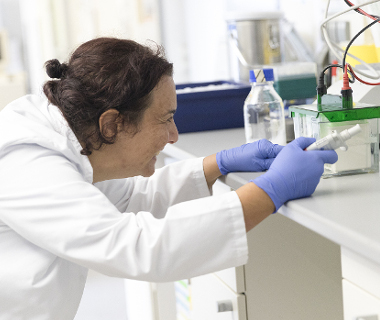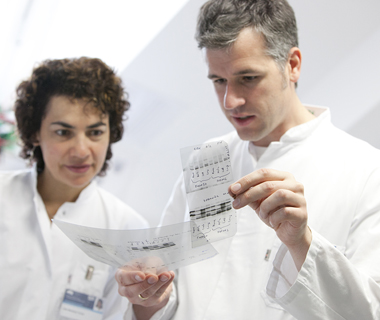für Innere Medizin II
direktion.med2@mri.tum.de


Team
Research background
The major research objectives of our laboratory are to understand the molecular mechanisms of pancreatic carcinogenesis and tumor maintenance. We use transgenic and knockout approaches to investigate the role of cancer-relevant mutations in mice. Our group focuses on the role of reactive oxygen species in chronic inflammation and the link between inflammation and tumor development.
Patients suffering from chronic pancreatitis are at increased risk of developing pancreatic cancer. We have established genetic models of chronic pancreatitis. These models are used to investigate the role of inflammation in pancreatic tumor development as well as to test preventive and therapeutic approaches.
Tumor viability is maintained by more genetic alterations than have initially led to tumor development. Identifying these changes will help to understand the cooperative effect of multiple oncogenic changes. Approaches include identification of critical cellular components and characterization of their functions using molecular, cellular and genetic methods.
Selected Publications
Medical theses ⎮ PhD
Please send your applications by email.